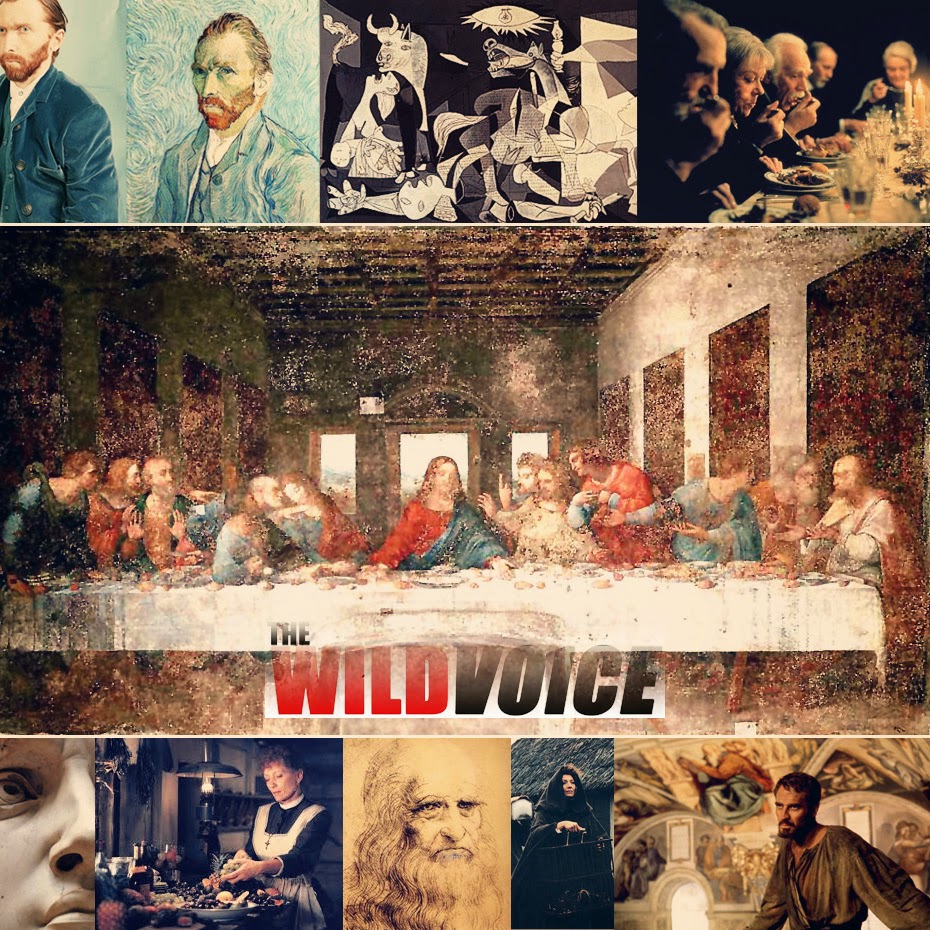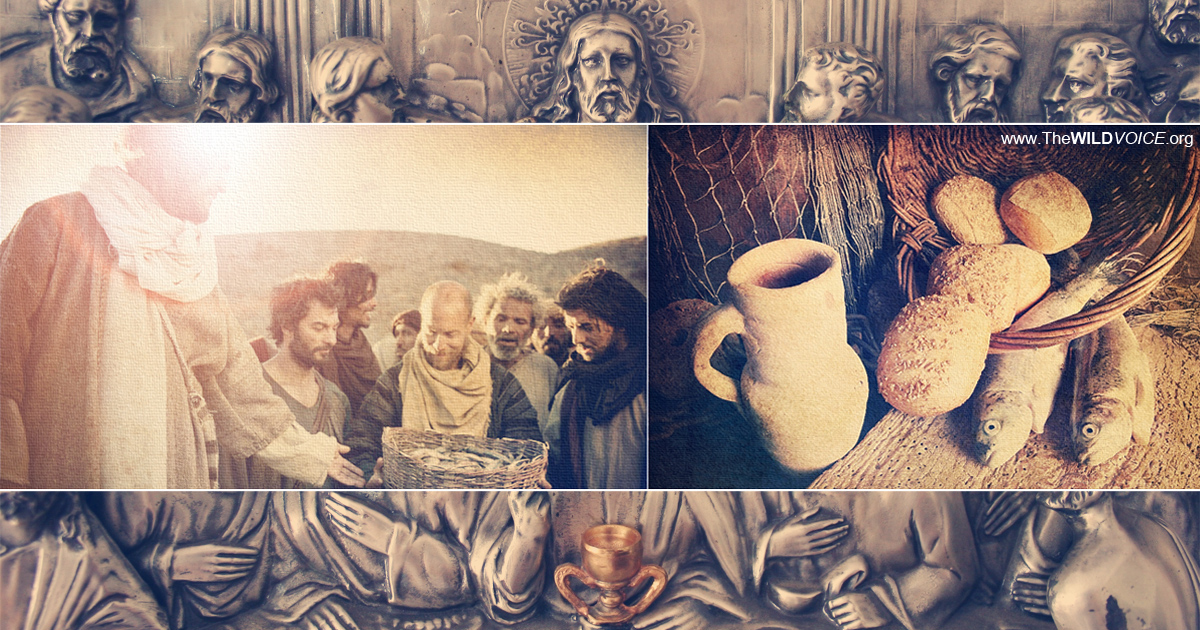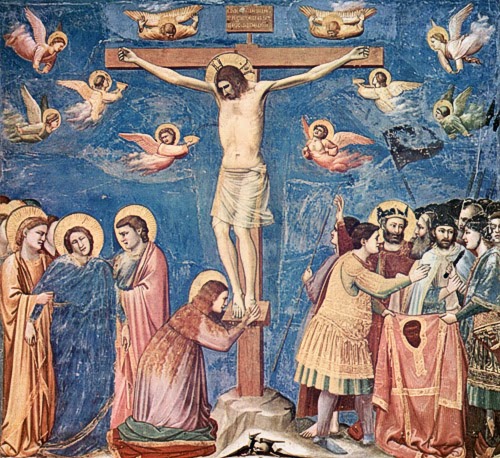published on July 8, 2014
AN ARTIST IS NEVER POOR
Written by PAUL JOSEPH C.
 Babette's Feast:
Babette's Feast:Karen Blixen wrote the extraordinary story of two elderly maiden sisters, Martine and Philippa, daughters of a long-deceased prophet-founder of an austere Christian sect. Living in rural Jutland, Denmark, they maintain a simple life of piety and charitable works while carrying on their father's memory by presiding over his small congregation of remaining disciples. As young women the two sisters were very beautiful but, as worldly concerns were not valued in their father's austere religious vision, they never married. However, two men, both from outside their remote Danish village, had in the past crossed paths with Martine and Philippa in significant ways. First, Lorenz Lowenhielm, a dissolute young cadet, in summer exile at his aunt's home as a result of parental punishment for unbecoming behavior, is captivated by Martine's beauty, but as he finally makes her acquaintance he finds himself at a loss in the rarified atmosphere and leaves. Next, Achille Papin, a famous opera singer, finds himself on the remote coast-land in search of rest. The solitude drowns him into a somber mood which is released only upon hearing Philippa's angelic voice. Believing that her voice is destined to thrill the heart of Europe, Papin offers himself as vocal tutor and educates his pupil in the operatic repertoire. The frank sensuality of the musical lyrics soon convinces his pupil that she must terminate the lessons and Papin returns to the continent without her. Years later, the sisters' untiring work among the poor has, in the intervening time, been made possible with the help of a maid, Babette, who one stormy night fourteen years earlier had arrived on their doorstep, a refugee from the terrors of the French civil war whose husband and son had perished. In her possession was a letter of introduction from Achille Papin who writes, remembering Phillipa after thirty-five years, assures her that in heaven she will be the great artist God intended her to be, and implores the sisters to give refuge to Babette. They did and, at the film's present time, had lived with them for almost fifteen years, doing the work of a domestic servant. The members of the prophet's sect, by this time, had fallen into disagreements and hoping to heal some of the group's wounds, Martine and Philippa plan a celebration in honor of what would have been their father's one-hundredth birthday. As the date approaches, Babette receives word that she has won 10,000 francs in the French lottery, thanks to a ticket an old friend of hers had renewed each year. Babette reflects on what to do with her winnings and requests of the sisters that they allow her to prepare, just once, a real French meal, and serve it for the pastor's celebration. Reluctantly they agree. Babette proceeds to order from Paris supplies the likes of which the sisters have never dreamed: wines, live quail and turtle, and so on. Martine and Philippa begin to fear that something akin to a witches' Sabbath is about to take place and they fearfully alert the rest of the disciples. All agree that they will attend the dinner with their minds on higher things, as if they had no sense of taste.
The evening of the celebration arrives and one of the disciples, the aunt of Lowenhielm, announces that her visiting nephew, now a general, will join them for dinner. Babette is immersed in the astonishing, sensuous and elaborate preparations for her meal. The guests arrive in their somber clothes and demeanor in high contrast to the sumptuous table set before them. General Lowenhielm alone, unaware of the group's strategy to remain disengaged, is overwhelmed by the exquisite fare which unfolds in magnificence before them, course by course. He speaks of a famous Parisian chef, a woman, who in the years before the civil war, was fabled for her culinary artistry. She had made dining a love affair in which there was no distinction between the spiritual and other appetites. Surely, the general remarks, these delicacies are the very ones he had savored at the fabled Cafe Anglais. Gradually, warmed by the fine wines and the general's example, the guests begin to respond, not only to the feast itself, but to one another. Old quarrels are healed, past sins genuinely forgiven. The general rises and, echoing the deceased pastor's words, acknowledges the reality of a world illuminated by love. When he departs he tenderly acknowledges to Martine that during the intervening years he had always been with her in love and friendship and that during this evening he had learned that with God all things are possible. The dinner comes to a close as the disciples leave and, illuminated by moonlight in the village square, they spontaneously join hands in a circle and dance.
 In the meantime, inside the house the sisters approach Babette with the intention of thanking her; as they enter the humble kitchen, they find the now tired woman sitting on a chair by the stove as if being in deep self-reflection. Martine, standing in front of her with a smile, joyfully says
In the meantime, inside the house the sisters approach Babette with the intention of thanking her; as they enter the humble kitchen, they find the now tired woman sitting on a chair by the stove as if being in deep self-reflection. Martine, standing in front of her with a smile, joyfully says"Babette. Oh, that was indeed a very good dinner."
Babette, having no reaction to these words of excitement, is still staring into emptiness. "They all thought it was a very good dinner!" reaffirmed Martine as to make sure the servant understood. Babette is still looking away when she calmly says "At one time I was the Head Chef at the Cafe Anglais". Seemingly not having realized, or heard, what the cook just said, in deep gratefulness Martine tells her "We shall all remember this evening when you are back in Paris." After a beat of silence, Babette says "I'm not going back to Paris". She then gets up to walk out of the kitchen and into the living room. The two sisters, standing in speechless surprise, immediately follow her. The chef is now breaking down the sumptuous table when a disbelieving Philippa asks her "You're not going back to Paris?"
"There is no one waiting for me, there. They are all dead." the chef replies. Then, after a pause during which she picks up a few plates, she adds "And I have no money."
"No money?" a now shocked Martine asks. As her sister sits at the table in deep concern, she asks "What about the 10,000 franks?"
"All spent" replies Babette, as she is now clearing the table with a smile on her face. She, indeed, had spent her entire lottery winnings on the meal. At the realization, Martin sits next to her sister as if her legs were incapable of supporting her, and slowly repeats "Ten thousand franks."
"Dinner for twelve at the Cafe Anglais costs 10,000 franks" a still smiling Babette says. With a reaction similar to that of someone who's told of the sudden death of a dear friend, Philippa asks "But dear Babette, you should not have given all you owned for us".
The French maid walks closer to the sisters and replies "It was not just for you."
Almost as if not truly understanding Babette's comment, here are Martin's words: "Now you will be poor for the rest of your life."
As she walks even closer to the elder women, with a confident smile and in absolute certainty, she states: "An artist is never poor."
"Dinner for twelve at the Cafe Anglais costs 10,000 franks" a still smiling Babette says. With a reaction similar to that of someone who's told of the sudden death of a dear friend, Philippa asks "But dear Babette, you should not have given all you owned for us".
The French maid walks closer to the sisters and replies "It was not just for you."
Almost as if not truly understanding Babette's comment, here are Martin's words: "Now you will be poor for the rest of your life."
As she walks even closer to the elder women, with a confident smile and in absolute certainty, she states: "An artist is never poor."
At the sound of these words and moved by what seemed to be a mystery of an illogical action of love, Philippa gets up from her chair and staring into the chef's eyes, she asks "Did you prepare that sort of dinner at the Cafe' Anglais?"
As if now immersed in the thoughts of a long past life and with her face painted with melancholiness, she replies: "I was able to make them happy. When I gave of my very best, Papin knew it."
Upon hearing her response, Philipa's spirit is lifted in joy and yet, contained in composed humbleness. As if her voice was trapped in her own breath, she slowly says "Achille Papin…"
As if now immersed in the thoughts of a long past life and with her face painted with melancholiness, she replies: "I was able to make them happy. When I gave of my very best, Papin knew it."
Upon hearing her response, Philipa's spirit is lifted in joy and yet, contained in composed humbleness. As if her voice was trapped in her own breath, she slowly says "Achille Papin…"
The now poor French lady quotes him in these words: "Yes. He said 'Throughout the world sounds one long cry from the heart of the artist: give me the chance to do my very best'"
With a trembling voice and on the verge of tears, hope comes through the old lady's voice in this phrase:
"But this is not the end, Babette. I'm certain it is not. In Paradise you will be the great artist that God Intended you to be."
Then, as she slowly walks towards Babette, she hugs her and the sublime words of her heart are uttered in this extraordinary last phrase:
"Ah! How you will delight the angels!"
"But this is not the end, Babette. I'm certain it is not. In Paradise you will be the great artist that God Intended you to be."
Then, as she slowly walks towards Babette, she hugs her and the sublime words of her heart are uttered in this extraordinary last phrase:
"Ah! How you will delight the angels!"
At that point, the flame of a candle sitting by the window is blown out by the invisible spirit of a peaceful ending.
THE LAST SUPPER

Throughout the world sounds one long cry from the heart of the artist: give me the chance to do my very best. These were the words of Achille Papin, the great opera singer from Paris who Babette knew very well. These were the silent words that laid beneath the works of Ludwig van Beethoven, Raphael Sanzio, Johann Sebastian Bach, Louis Pasteur, Dante Alighieri, Fyodor Dostoyevsky and Albert Einstein. That sound was the whisper heard in the perfect works of artists such as Mother Theresa, Francis of Assisi, Thomas Aquinas and Therese of Lisieux. That long cry from the heart of Michelangelo, Catherine of Siena, Martin Luther King, Maria Callas and of all those whose sublime fruits were never known by this world's generations, all came from one cry.
On a cold afternoon and under the blackened skies covering the Earth's womb, a voice in the wild pierced the hearts of all the living that ever were minted from the dirt of our mountains and deserts.
On a cold afternoon, the voice of Love pierced the dark vault above and reached Itself in the Father's Bosom after It had been pierced by nails as punishment for having shared Itself.
On a cold afternoon, Paradise became silent as the eternal praises of angelic sublimity were broken by the loud utterance of these words: "Eli, Eli, lama sabachthani?"
On a cold afternoon and under the blackened skies covering the Earth's womb, a voice in the wild pierced the hearts of all the living that ever were minted from the dirt of our mountains and deserts.
On a cold afternoon, the voice of Love pierced the dark vault above and reached Itself in the Father's Bosom after It had been pierced by nails as punishment for having shared Itself.
On a cold afternoon, Paradise became silent as the eternal praises of angelic sublimity were broken by the loud utterance of these words: "Eli, Eli, lama sabachthani?"
Today, this long cry still echoes throughout the world from the heart of the Greatest among all artists, and whose only chance of redeeming every child ever conceived into creation became an unbreakable Promise on the exhale of a final breath. In that cry, a King stripped of all His royal Majesty and clothed in all His naked and wounded Humanity, called upon the Mighty Artist whose first masterpiece was that same Creation casting darkness on that same afternoon. The One through Whom the Father Made all things, uttered the suffered cry of a most unfathomable pain and yet, most pleasing self-sacrifice in the never-ending love containing all the known and unknown.
The sound of solitude uttered in the question 'My God, My God, why have You Forsaken Me?' was answered by the laughing, the mocking and the ingratitude of those wicked men and women who were blind to that breathtaking treasure of God's Redemptive Work now suspended between Heaven and earth. That moment, which so much was portrayed by the hands of the most refined painters during the Renaissance, was executed on the dirty canvas of humanity's cruelty, while the signature at its bottom consisted of God's Masterpiece: that silent Fortress who, under the name of Mary, bore the weight of Her Baby's cross in Her own Womb while tasting the bitterness of all sins ever committed before and after Her Immaculate Conception. On that bare scalp of Golgotha, the Master of all sculptors and scientists told His virginal Mother to behold all men and women into that same Womb where He Found nourishment and protection from the world. This gift He gave to all, including those few soldiers who, in that same instant, were dividing His garments among themselves by casting lots in the cold wind.
As the Body and Spirit in which all works of perfect redemption found their exhausted completeness, the sound of all symphonies ever composed by God's Created geniuses was heard in the words 'It is consummated'. And as the Son of Man commenced His Spirit in His Father's Hand before dying, so will do all those who give themselves to others in the way He Did.
 It was behind the appearance of poverty that the riches of a King were never to be seen through human sight. Honored by men with a crown of thorns and a thousand spits, this King was the very incarnation and origin of Babette's words 'An artist is never poor'.
It was behind the appearance of poverty that the riches of a King were never to be seen through human sight. Honored by men with a crown of thorns and a thousand spits, this King was the very incarnation and origin of Babette's words 'An artist is never poor'.Before carrying the cross of her own poverty and before entering Christ's given chance to delight the angels as the artist that God meant her to be, it was the long cry from the heart of The Master Artist which was cross and delight for all on earth and in Heaven. Now, the Teacher gave His student the chance to do her very best by giving away that culinary masterpiece which delighted the palates of all those men and women who never were meant to know that the author of the greatest feast they ever experienced was the Master Chef at the Cafe' Anglais. Never will they know this. Never will they have the chance to thank her and never will they learn that the price of such free gift came at the cost of her now life long poverty. The signature of her art-piece was omitted as to not corrupt the purity of her charity as a sort of fast from praises and self-approbation. Their joyful feasting at the price of her own joyful fasting paralleled the act of a self sacrificial Lamb giving Himself to us as Food of Life to be consumed for the joy and salvation of all. And after the food was consummated, she commenced herself into God's Providence, knowing that an artist will never be poor.
8 comments for “The Christ Who Made Us Food”